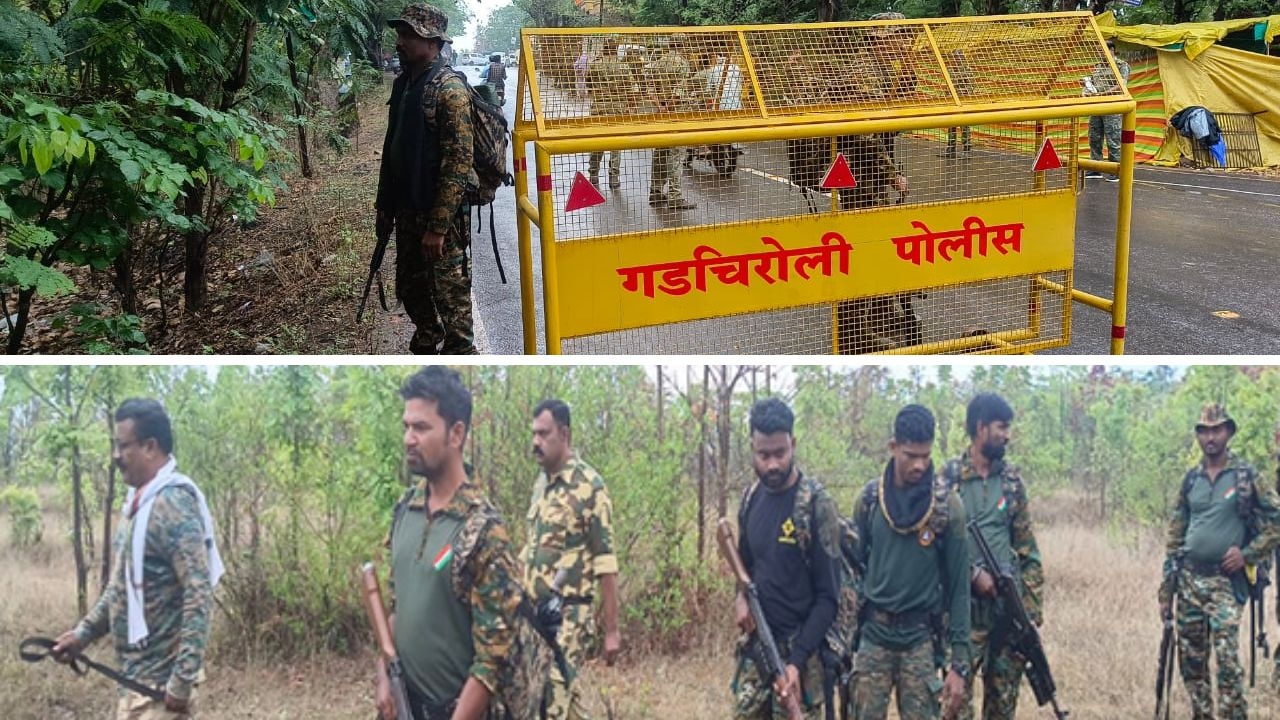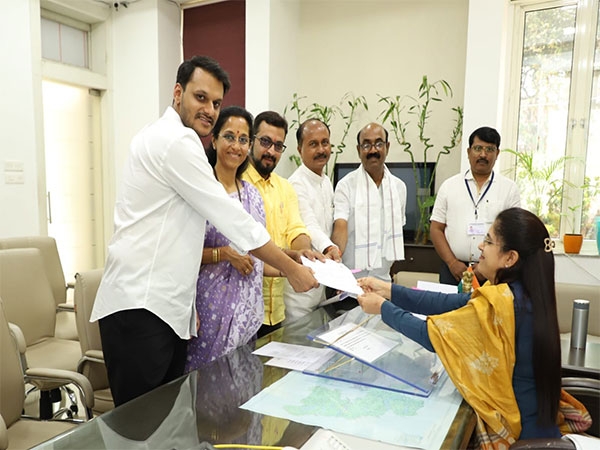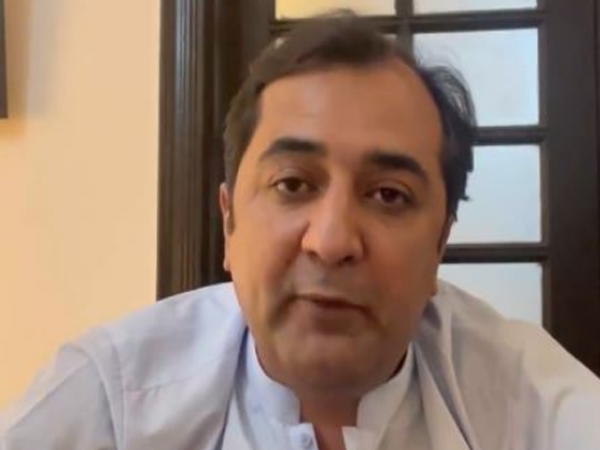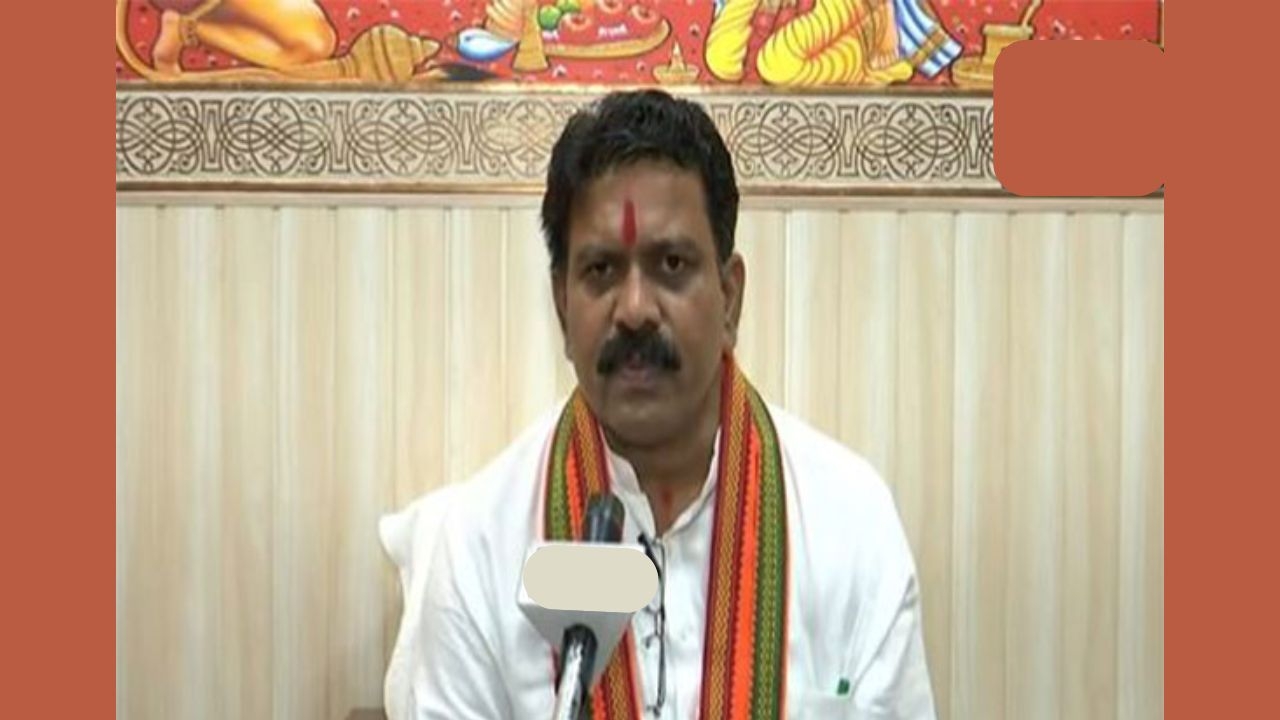Reliance-Modi: How Ambani stamped his clout on foe YSR's death anniversary
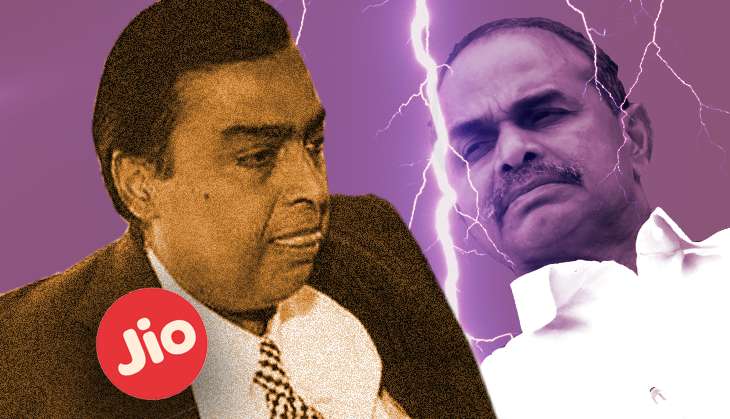
- On Friday, PM appeared in a full page Reliance Jio ad and gave an interview to Network 18
- This seemed to be Mukesh Ambani\'s way of showcasing his political clout
- Friday was also the death anniversary of YS Rajasekhara Reddy, who took on Reliance
- How YSR confronted the Ambanis
- What was its impact on Andhra Pradesh?
On Friday, 2 September, Reliance Industries Limited chairman Mukesh Ambani chose to showcase his political clout. In the morning, Reliance issued full page advertisements with Prime Minister Narendra Modi's picture in every major newspaper, marketing its new product, Reliance Jio.
The same evening, Modi appeared in an exclusive interview to the Reliance-owned Network18.
While many of us may have cringed at this display of cosiness between India's Prime Minister and an industrialist, for some, it may have added insult to injury.
Friday also happened to be the death anniversary of the only Indian politician who dared to take on the mighty Reliance: former Andhra Pradesh Chief Minister YS Rajasekhara Reddy. That is, before Arvind Kejriwal arrived on the scene.
On 2 September 2009, Reddy, or YSR, as he was popularly known, died in a mysterious helicopter crash in the Nallamala forest in Andhra Pradesh.
At that time, YSR was arguably the most powerful Chief Minister in the country. The Congress had won 33 of the 42 seats in undivided Andhra Pradesh in that year's Lok Sabha elections, forming a bulwark of support for the ruling United Progressive Alliance.
Given YSR's populist approach, Andhra Pradesh was often the laboratory for the implementation of UPA's pro-poor schemes. At that time, Andhra was the model being talked about, not Gujarat.
Some say that Reddy got too taken in by his larger than life image in Andhra Pradesh, which is why he decided to confront India's most powerful industrial house.
YSR's confrontation with Reliance
In 1999, the previous NDA government came up with the New Exploration Licencing Policy (NELP), allowing private players into the exploration of gas and oil. Reliance Industries bagged the rights for exploration and production at the D6 block in the Krishna-Godavari (KG) Basin near the Andhra Pradesh coast. The KG Basin is supposed to be the biggest gas reserve in India.
But when Reliance Industries split between brothers Mukesh and Anil, a dispute arose over the rights to the KG Basin. Even though exploration of natural resources - which ultimately belong to the people of the country - was in danger, the Union government (then headed by the UPA) did not intervene.
The UPA government's stand was broadly that the "Ambani brothers must resolve their differences in the national interest". The BJP-led Opposition, too, made no noise. The brothers, in turn, looked towards their mother, Kokilaben, to settle the dispute. So with both the government and the Opposition looking the other way, the fate of India's largest gas reserve was virtually left to the whim of the Ambani matriarch.
The only leader who raised his voice against this was YSR. In 2006, when the Ambani family feud was at its peak, Reddy asserted: "Gas is a natural resource, a property of the nation, not of a private company."
This is precisely the stand that the Supreme Court took years later, and the principle Arvind Kejriwal cited while demanding that Reliance's KG Basin contract be scrapped. But back in 2006, YSR was a lone voice against Reliance.
Even when the ridiculous proposal of Kokilaben mediating between the two brothers was presented in 2009, YSR said: "The dispute over sharing of gas is not an issue to be settled by the mother (Kokilaben). It is for the government to decide who should get the gas, and also, at what price."
Reddy even wrote a letter to Prime Minister Manmohan Singh, urging him to defend the Centre's right to allocate resources, and expressing fears that a legal dispute between the Mukesh-run Reliance Industries Ltd (RIL) and Anil-led Reliance Natural Resources Ltd (RNRL) could hurt consumers.
He also requested that at least 10% of the gas allocation be given for the industrial development of Andhra Pradesh. Reddy's aim was to use the gas supplies from the KG Basin to provide cheap LPG cylinders to the people. He had made a commitment to bring down the price of gas cylinders to Rs 200.
Not only that, YSR also set up the Andhra Pradesh Gas Infrastructure Corporation to bid for the NELP blocks and foray into gas exploration, putting the state government in direct competition with the Ambanis. This was in sharp contrast to his predecessor and present Chief Minister N Chandrababu Naidu, who refused to bid for exploration rights in the KG Basin when they were up for grabs.
But YSR couldn't carry forward his confrontation as he died in a helicopter crash less than two months after he made the Kokilaben remark.
However, YSR's tough stand eventually did find some resonance in the UPA. In November 2009, the UPA government modified its earlier position of neutrality to some extent. "Gas is not the private property of RIL or RNRL, and any understanding arrived at between them is not binding upon the government," additional solicitor general Mohan Parasaran told the Supreme Court.
By 2011, the UPA replaced the seemingly pro-Reliance Petroleum Minister Murli Deora with the tough S Jaipal Reddy.
Like his fellow Reddy from Andhra Pradesh, Jaipal Reddy also made life difficult for Reliance.
"The gas is mine," Reddy is reported to have told Mukesh Ambani, as he rejected the latter's request to increase the price of the KG Basin gas from from $4.2 per million metric British thermal unit to $14.20.
Sheela Bhatt of Rediff called Jaipal Reddy a Kejriwal within the UPA government. "What will you do if you are in my seat? How can I give you such a high price for gas?" Reddy asked Ambani, according to Bhatt's report.
Battle for Andhra Pradesh
Whether Jaipal was being a Kejriwal within the UPA or merely carrying forward YSR's legacy isn't known.
What is known, however, is that the confrontation with YSR had a deep impact on Reliance. Mukesh Ambani, in particular, recognised the need for having a friendly government in Andhra Pradesh. And this supposedly drove him to align with forces inimical to YSR, most notably pro-TDP media baron Ramoji Rao's Eenadu TV. Besides being pro-TDP and anti-YSR, Eenadu was also facing competition from YSR's son YS Jaganmohan Reddy's Sakshi TV, launched in 2009.
When the deal between Eenadu and Blackstone Investment fell through due to pressure from YSR, JM Financial chairman Nimesh Kampani entered the equation, picking up 21% stake for Rs 1,424 crore. It was well known that Kampani was a front for Mukesh Ambani.
But YSR literally drove Kampani out. The Andhra Pradesh police issued a 'lookout' notice against Kampani because Nagarjuna Finance, a firm where he had been a director, had allegedly defrauded depositors. Fearing arrest, Kampani was forced to leave the country. Apparently, Ambani had to formally pick up the stake after Kampani was driven out.
This was kept under wraps until 2011, when YSR's wife Vijayamma filed a writ petition in the Andhra Pradesh High Court, alleging: "In consideration for the favour done by Chandrababu Naidu in allowing the state's K-G Basin claim to be brushed under the carpet, the Reliance group facilitated the payout of Ramoji Rao's debts to his depositors. This was carried out through known associates and friends of Mukesh Ambani."
It was because of this writ petition that Reliance was forced to admit that it had a Rs 2,600 crore stake in Eenadu TV. This stake was picked up by Network18 after it was bailed out by RIL.
Who stands where
So, today, as Reliance scales new heights and its Network18 interviews Modi, its erstwhile opponent YSR lies defeated.
Andhra Pradesh, which YSR ruled for five years, has now been bifurcated. The Congress, to which he belonged, is now a marginal player in the state.
YSR's heir, Jaganmohan Reddy, heads the main Opposition party in the truncated state, but his power and popularity is nowhere near that of his father.
Both the Centre and Andhra Pradesh governments are headed by regimes that are known to be friendly towards Reliance. Reliance practically controls both Eenadu TV and Network18.
YSR's battle against Reliance seems to have been taken forward by Kejriwal, who is presently engaged in a confrontation with Delhi Lieutenant Governor Najeeb Jung, who had earlier worked at the Reliance-funded Observer Research Foundation.
The only thing that hasn't changed is the KG Basin, where Reliance continues to be in trouble. In a report submitted to the government on 31 August, the Justice AP Shah committee that was inquiring into a dispute between Reliance and ONGC has indicted the former for making "unjust gains" by pumping gas from the ONGC's adjoining block.
If only someone had YSR's courage to assert that natural resources belonged to the people of this country. Instead, what we have is a Prime Minister appearing in advertisements for private companies.
More in Catch:
Is Mukesh Ambani extending an olive branch to PM Modi with the Jio ad?
Reliance Jio Vs Airtel: How a 2002 conference haunts Mukesh Ambani
First published: 3 September 2016, 4:59 IST


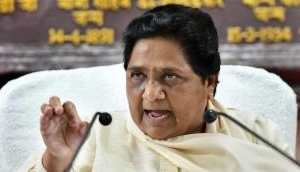
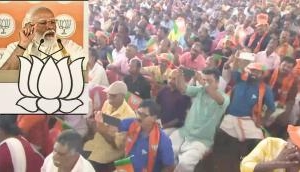
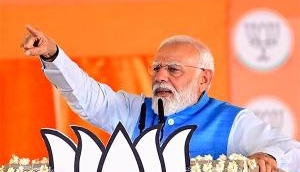
_251267_300x172.jpg)
![BJP's Kapil Mishra recreates Shankar Mahadevan’s ‘Breathless’ song to highlight Delhi pollution [WATCH] BJP's Kapil Mishra recreates Shankar Mahadevan’s ‘Breathless’ song to highlight Delhi pollution [WATCH]](http://images.catchnews.com/upload/2022/11/03/kapil-mishra_240884_300x172.png)

![Anupam Kher shares pictures of his toned body on 67th birthday [MUST SEE] Anupam Kher shares pictures of his toned body on 67th birthday [MUST SEE]](http://images.catchnews.com/upload/2022/03/07/Anupam_kher_231145_300x172.jpg)


